To improve the diagnosis and treatment of patients with tuberculosis (TB).
TB Diagnostics Implementation of TB Care Centers
TB Diagnostics
Rapid Research in Diagnostics Development (R2D2) TB Network
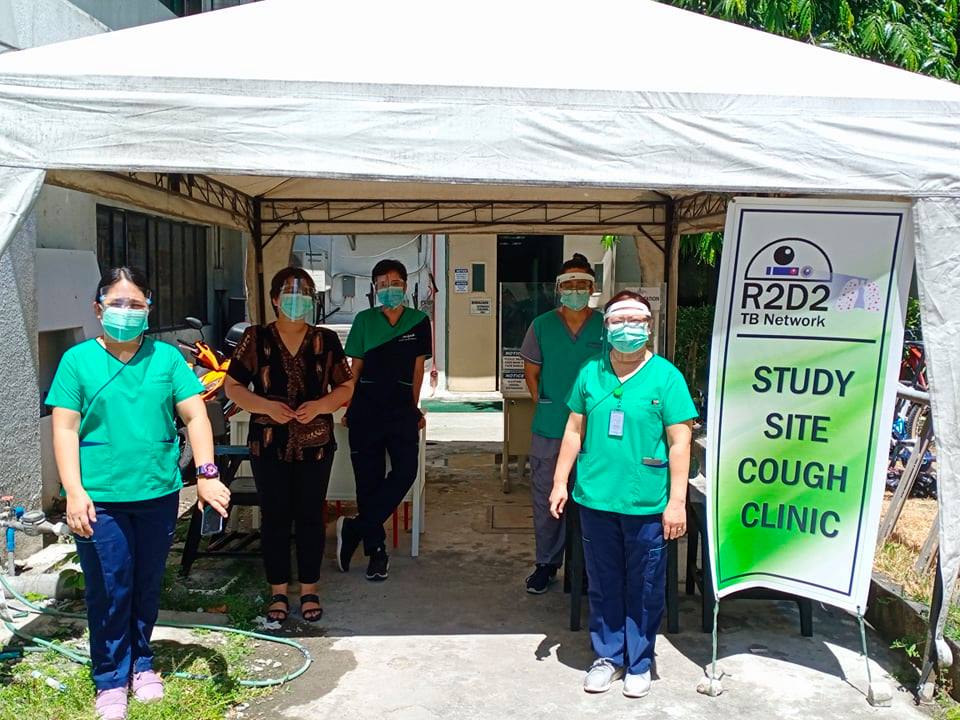
The Rapid Research in Diagnostics Development for TB Network seeks to identify and rigorously assess promising early stage tuberculosis (TB) triage, diagnostic and drug resistance tests (“novel tests”) in clinical studies conducted in settings of intended use.
Biomarker-based TB Diagnostics - Global Health Labs
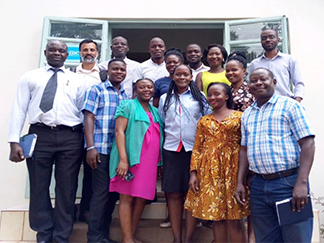
This study seeks to develop and evaluate non-sputum based, biomarker-based tests for tuberculosis (TB), which is a leading priority for TB diagnostics research. Currently, we will focus on an enhanced assay for detecting lipoarabinomannan (LAM) antigen in urine, detection of Mycobacterium tuberculosis-derived DNA in plasma and urine, and a breath sensor that detects volatile organic compounds (VOCs) thought to be emitted by Mycobacterium tuberculosis. The accuracy of novel tests will be compared against a reference standard that is Gene Xpert® MTB/RIF and mycobacterial culture.
END Childhood TB (ECTB) Study
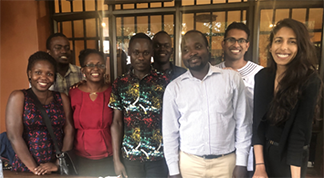
The Evaluation of Novel Diagnostics for Childhood Tuberculosis (END Childhood TB) study is a five year study funded by the U.S. National Institutes of Health to evaluate novel point-of-care tests and identify biomarkers for diagnosis of TB in children. The study will enroll 875 children with presumed TB, collect samples for conventional and novel TB tests, and follow children for up to 6 months to assess outcomes. A comparison group of 100 healthy children and children with other respiratory illnesses will also be enrolled. Enrollment began in November 2018. Biomarkers and tests being evaluated include breath volatile organic compounds, novel stool processing methods for Xpert MTB/RIF Ultra testing, cell-free DNA in blood and urine samples, and novel urine LAM assays.
Childhood Omics and Mycobacterial-derived Biomarkers (COMBO)
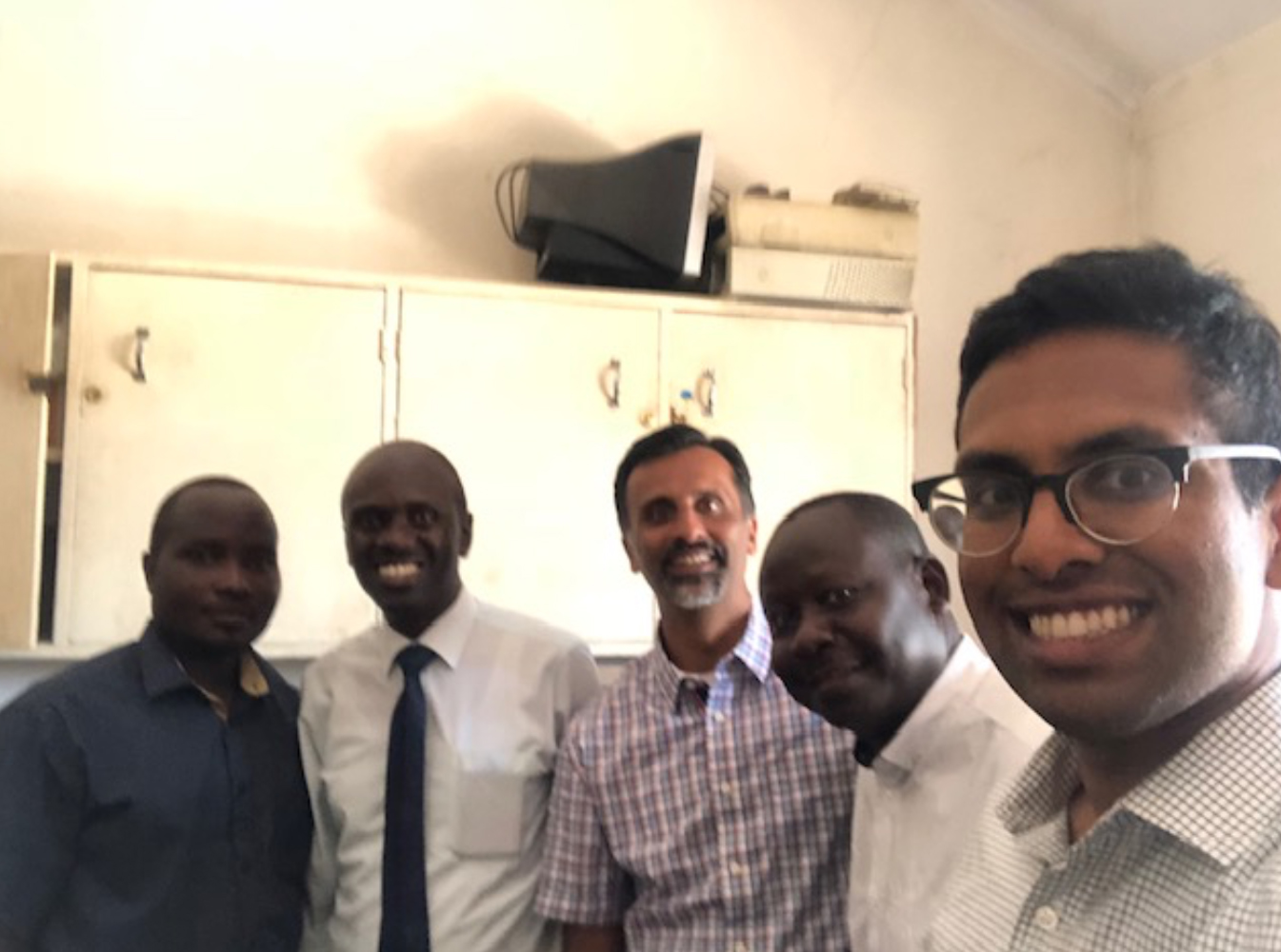 To identify biomarker signatures that meet recommended accuracy thresholds for a non-sputum, biomarker-based TB triage and/or diagnostic test for children. The aims for this project is to (1) Quantify levels of known Mtb proteins using an ultra-sensitive ECL-based assay, (2) Identify host proteins, PTMs and metabolites that can serve as biomarkers for detection of childhood TB, and (3) derive and validate the diagnostic accuracy of Mtb and/or host biosignatures for childhood TB.
To identify biomarker signatures that meet recommended accuracy thresholds for a non-sputum, biomarker-based TB triage and/or diagnostic test for children. The aims for this project is to (1) Quantify levels of known Mtb proteins using an ultra-sensitive ECL-based assay, (2) Identify host proteins, PTMs and metabolites that can serve as biomarkers for detection of childhood TB, and (3) derive and validate the diagnostic accuracy of Mtb and/or host biosignatures for childhood TB.
Philippines Drug-resistant TB (DR-TB)
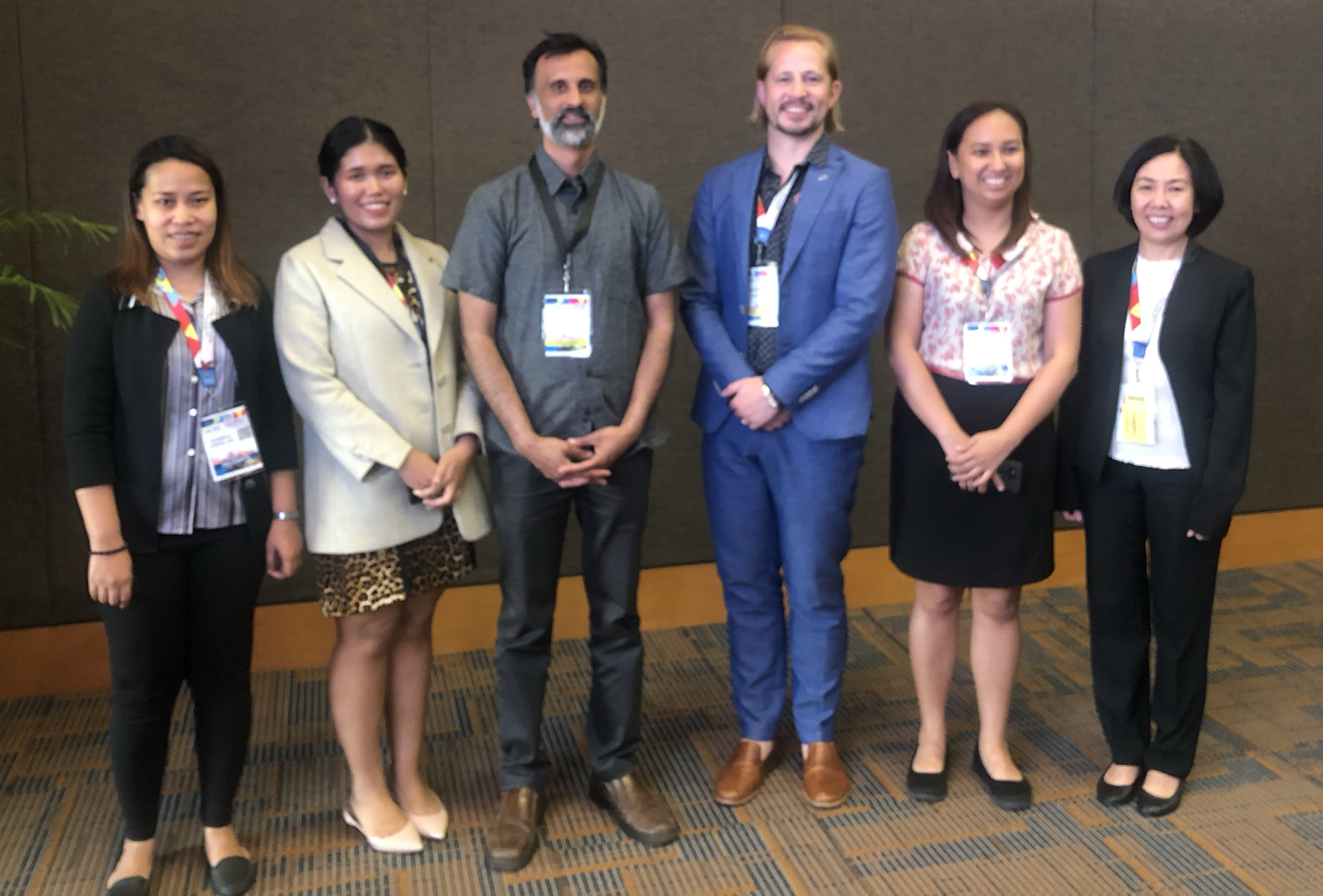 The overall goal of this proposal is to fundamentally advance molecular diagnostics for pre-XDR and XDR TB. Targeted next-generation deep sequencing of all known genes and gene regions associated with Mycobacterium tuberculosis drug resistance will be performed on stored culture isolates from all patients diagnosed with pre-XDR and XDR TB and a random sample of patients diagnosed with MDR TB through the Philippines Programmatic Management of Drug-resistant Tuberculosis (PMDT) Program. Results will be used to assess the characterize the frequency of hetero-resistance for different anti-TB drugs, determine the ability of current molecular assays to identify resistance in the presence of mixed bacillary populations, and assess the impact of hetero-resistance on treatment outcomes. In addition, whole genome next-generation sequencing will be performed in cases (FQ- and SLI-resistant isolates without a known mutation) and controls (FQ- and SLI-susceptible isolates) to identify novel genetic markers of FQ and SLI resistance. Prediction models will be developed to quantify improvements in diagnostic accuracy for FQ and SLI resistance when adding the novel genetic markers and experiments will be performed to identify which novel mutations directly cause FQ or SLI resistance. The analyses will result in a comprehensive description of reasons for discordance between phenotypic and genotypic tests for resistance to FQ and SLI, evidence on the impact of hetero-resistance on treatment outcomes, and a list of novel mutations that improve prediction of and direclty cause FQ and SLI resistance.
The overall goal of this proposal is to fundamentally advance molecular diagnostics for pre-XDR and XDR TB. Targeted next-generation deep sequencing of all known genes and gene regions associated with Mycobacterium tuberculosis drug resistance will be performed on stored culture isolates from all patients diagnosed with pre-XDR and XDR TB and a random sample of patients diagnosed with MDR TB through the Philippines Programmatic Management of Drug-resistant Tuberculosis (PMDT) Program. Results will be used to assess the characterize the frequency of hetero-resistance for different anti-TB drugs, determine the ability of current molecular assays to identify resistance in the presence of mixed bacillary populations, and assess the impact of hetero-resistance on treatment outcomes. In addition, whole genome next-generation sequencing will be performed in cases (FQ- and SLI-resistant isolates without a known mutation) and controls (FQ- and SLI-susceptible isolates) to identify novel genetic markers of FQ and SLI resistance. Prediction models will be developed to quantify improvements in diagnostic accuracy for FQ and SLI resistance when adding the novel genetic markers and experiments will be performed to identify which novel mutations directly cause FQ or SLI resistance. The analyses will result in a comprehensive description of reasons for discordance between phenotypic and genotypic tests for resistance to FQ and SLI, evidence on the impact of hetero-resistance on treatment outcomes, and a list of novel mutations that improve prediction of and direclty cause FQ and SLI resistance.
Implementation of TB Care
3HP Options Trial
 The Options for Delivering Isoniazid-Rifapentine (3HP) for TB Prevention Trial (3HP Options Trial) is a hybrid effectiveness-implementation trial of three strategies for delivering short-course TB preventive therapy in the context of routine HIV/AIDS care in Kampala, Uganda. The overall objective is to identify a patient-centered delivery strategy that will facilitate acceptance and completion of 3HP (a three-month, 12-dose regimen of weekly rifapentine and isoniazid). Participants will be randomized to one of three delivery strategies: 1) Facilitated directly-observed therapy (DOT); 2) Facilitated Self Administered Therapy (SAT) using 99DOTS-based digital adherence technology to monitor and promote adherence; and 3) Patient choice between Facilitated SAT and Facilitated DOT using a decision aid. Facilitation in all arms will include standardized patient counseling, streamlined clinic visits for DOT or medication refills, and reimbursement of costs associated with completing DOT or refill visits. Our central hypothesis is that offering PLHIV an informed choice between DOT and SAT delivery strategies that are optimized to overcome key barriers to treatment adherence will result in greater acceptance and completion of 3HP. Embedded mixed methods and health economic studies will evaluate the implementation of each delivery strategy and compare their cost-effectiveness.
The Options for Delivering Isoniazid-Rifapentine (3HP) for TB Prevention Trial (3HP Options Trial) is a hybrid effectiveness-implementation trial of three strategies for delivering short-course TB preventive therapy in the context of routine HIV/AIDS care in Kampala, Uganda. The overall objective is to identify a patient-centered delivery strategy that will facilitate acceptance and completion of 3HP (a three-month, 12-dose regimen of weekly rifapentine and isoniazid). Participants will be randomized to one of three delivery strategies: 1) Facilitated directly-observed therapy (DOT); 2) Facilitated Self Administered Therapy (SAT) using 99DOTS-based digital adherence technology to monitor and promote adherence; and 3) Patient choice between Facilitated SAT and Facilitated DOT using a decision aid. Facilitation in all arms will include standardized patient counseling, streamlined clinic visits for DOT or medication refills, and reimbursement of costs associated with completing DOT or refill visits. Our central hypothesis is that offering PLHIV an informed choice between DOT and SAT delivery strategies that are optimized to overcome key barriers to treatment adherence will result in greater acceptance and completion of 3HP. Embedded mixed methods and health economic studies will evaluate the implementation of each delivery strategy and compare their cost-effectiveness.
DOT to DAT – TB REACH/Stop TB Partnership
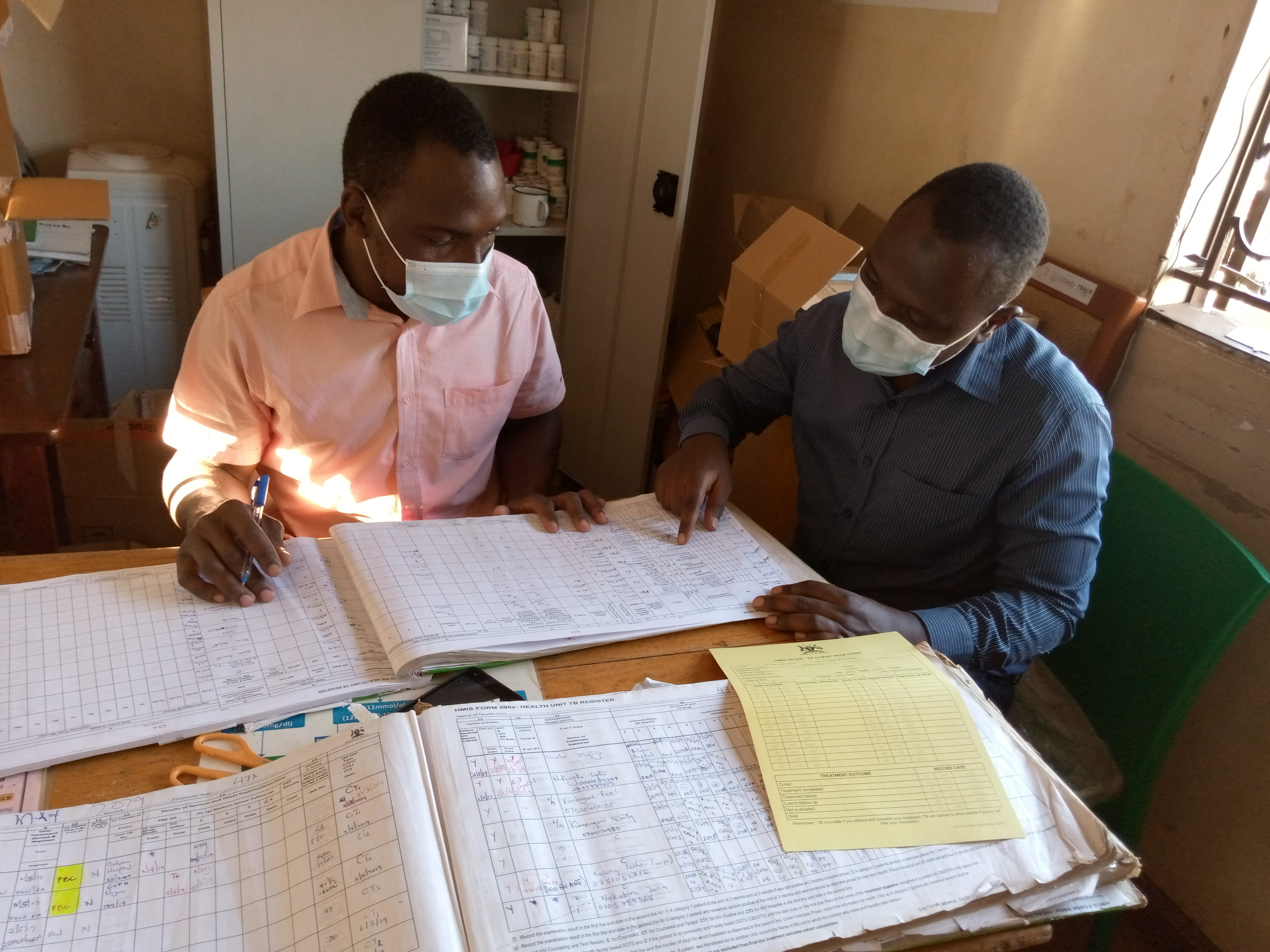 99DOTS is a low-cost digital adherence technology with potential which is currently 72% in Uganda. Providers receive real-time data on medication adherence when patients make a toll-free call daily to confirm dosing, facilitating monitoring and targeted resource allocation. We aimed to evaluate treatment adherence, benefits and challenges of using 99DOTS.
99DOTS is a low-cost digital adherence technology with potential which is currently 72% in Uganda. Providers receive real-time data on medication adherence when patients make a toll-free call daily to confirm dosing, facilitating monitoring and targeted resource allocation. We aimed to evaluate treatment adherence, benefits and challenges of using 99DOTS.
XPEL TB trial
The Xpert Omni Performance Evaluation for Linkage to Tuberculosis Care (The XPEL TB Trial) is a multi-centre cluster-randomized trial that aims to compare patient outcomes at health centers randomized to intervention versus standard of care TB diagnostic evaluation strategies, to identify processes and contextual factors that influence the effectiveness and fidelity of the intervention TB diagnostic evaluation strategy and to compare the costs and epidemiological impact of intervention versus standard of care TB diagnostic evaluation strategies. The overall goal of the study is to assess the effectiveness, implementation and costs of a streamlined TB diagnostic evaluation strategy based around rapid, onsite molecular testing.
Centers
UCSF Center for TB
Brings expertise across a range of disciplines to solve the problems that have historically undermined global TB elimination efforts. The mission of the Center for Tuberculosis is to enhance faculty collaboration and knowledge integration, lead strategic initiatives to accelerate discovery and develop early stage investigators to ensure continuity of TB elimination research.
Partnerships for Research in Implementation Science for Equity (PRISE) Center
Fosters the growth of partnerships between researchers, healthcare delivery teams and public health providers to better understand why desired outcomes were or were not achieved for key health priorities, what needs to change, and how to make change happen.